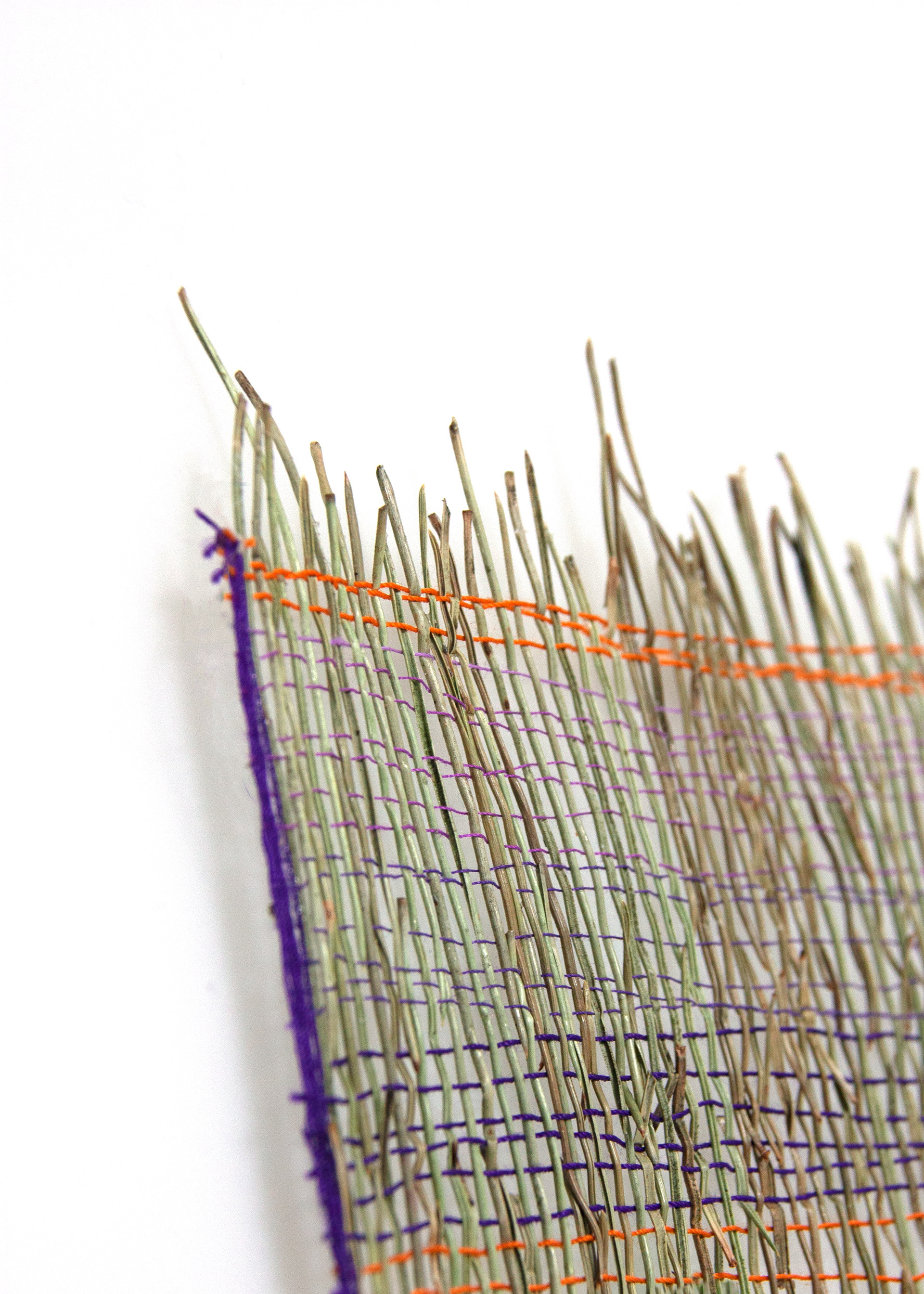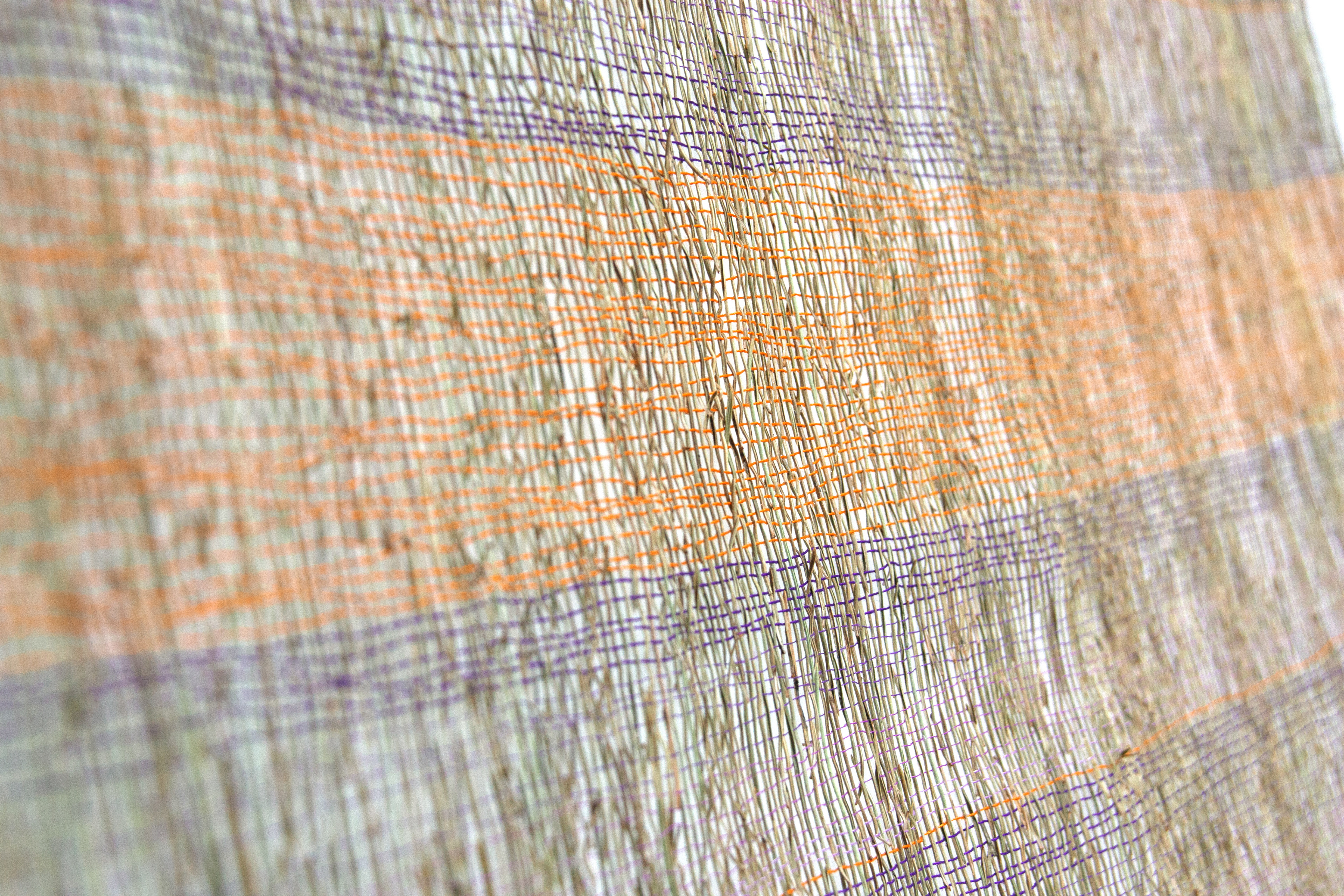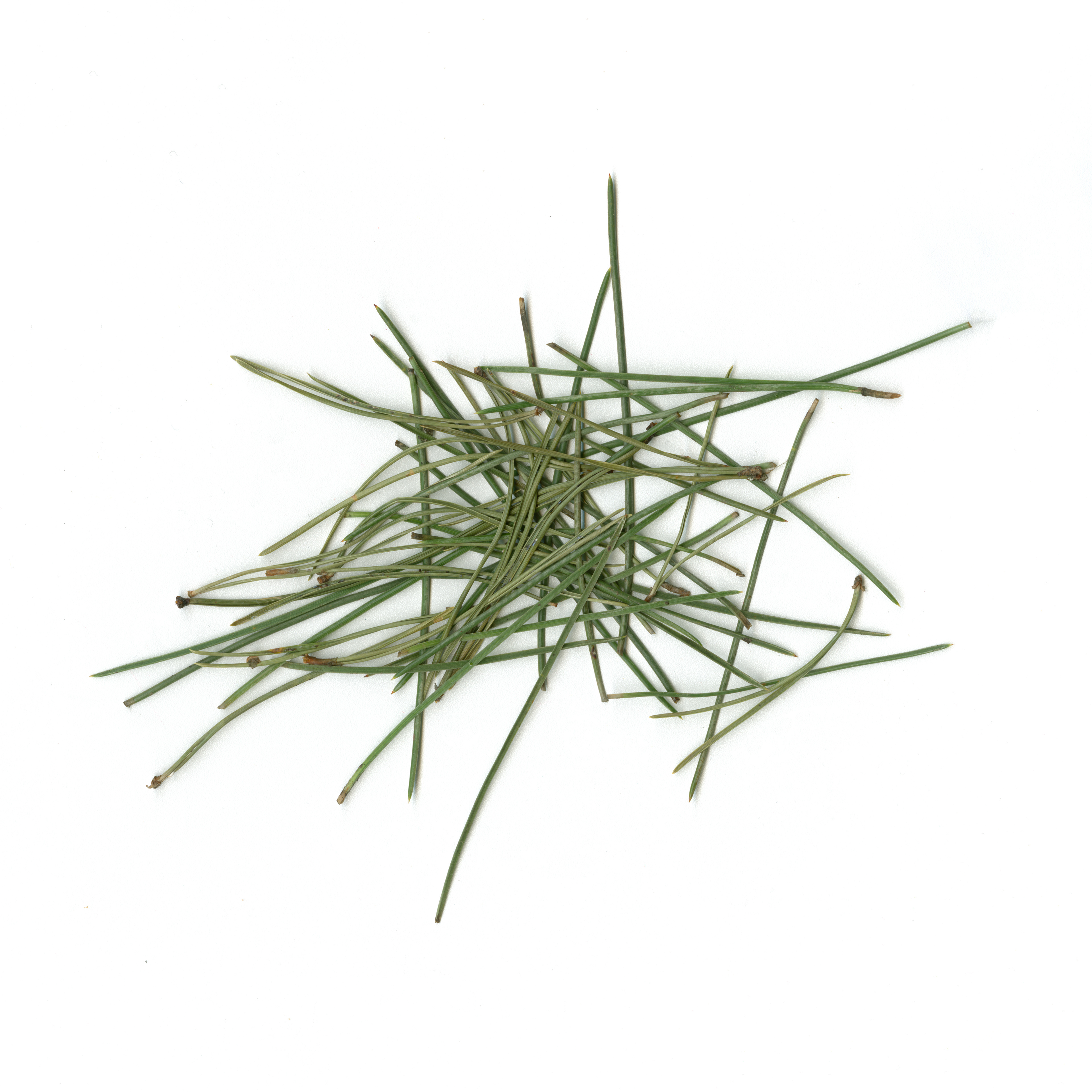
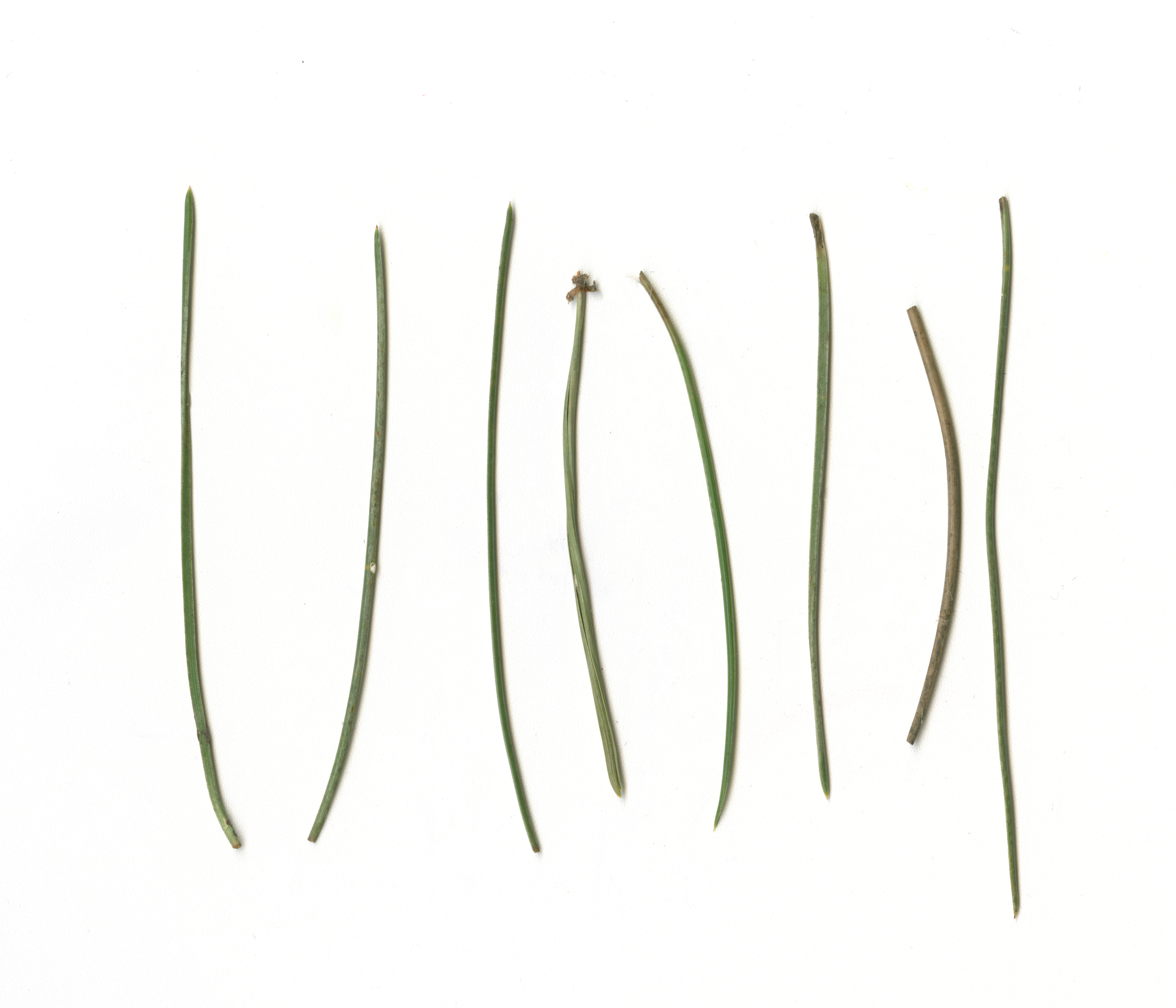
JUHLA
In Europe, pine trees are a highly valued resource—extensively used for their wood in construction and furniture-making. However, the pine needle, though produced in immense quantities during logging, is almost always discarded. JUHLA is a speculative material study that reimagines these needles as the basis for a fully biodegradable textile. Using a basic warp yarn, the needles are woven into a dense, tactile surface that can be composted after use—returning to the soil and reentering the ecological cycle.
The name “JUHLA,” taken from the Finnish word for “celebration,” reflects the project’s seasonal and symbolic roots. Created as an alternative to the traditional Christmas tree, the textile functions as a compact and sustainable display for gifts or as a decorative wall piece. Its production process —gathering, sorting, weaving—becomes a ritual in itself, echoing the cyclical and reflective nature of seasonal celebrations.
Rather than offering a new product or material solution, JUHLA serves as a conceptual exploration of locality, waste, and value. It invites a reconsideration of how natural materials are used, and how design can engage with themes of temporality, tradition, and ecological responsibility. By spotlighting what is usually discarded, the project opens a space for rethinking both material potential and cultural practice.
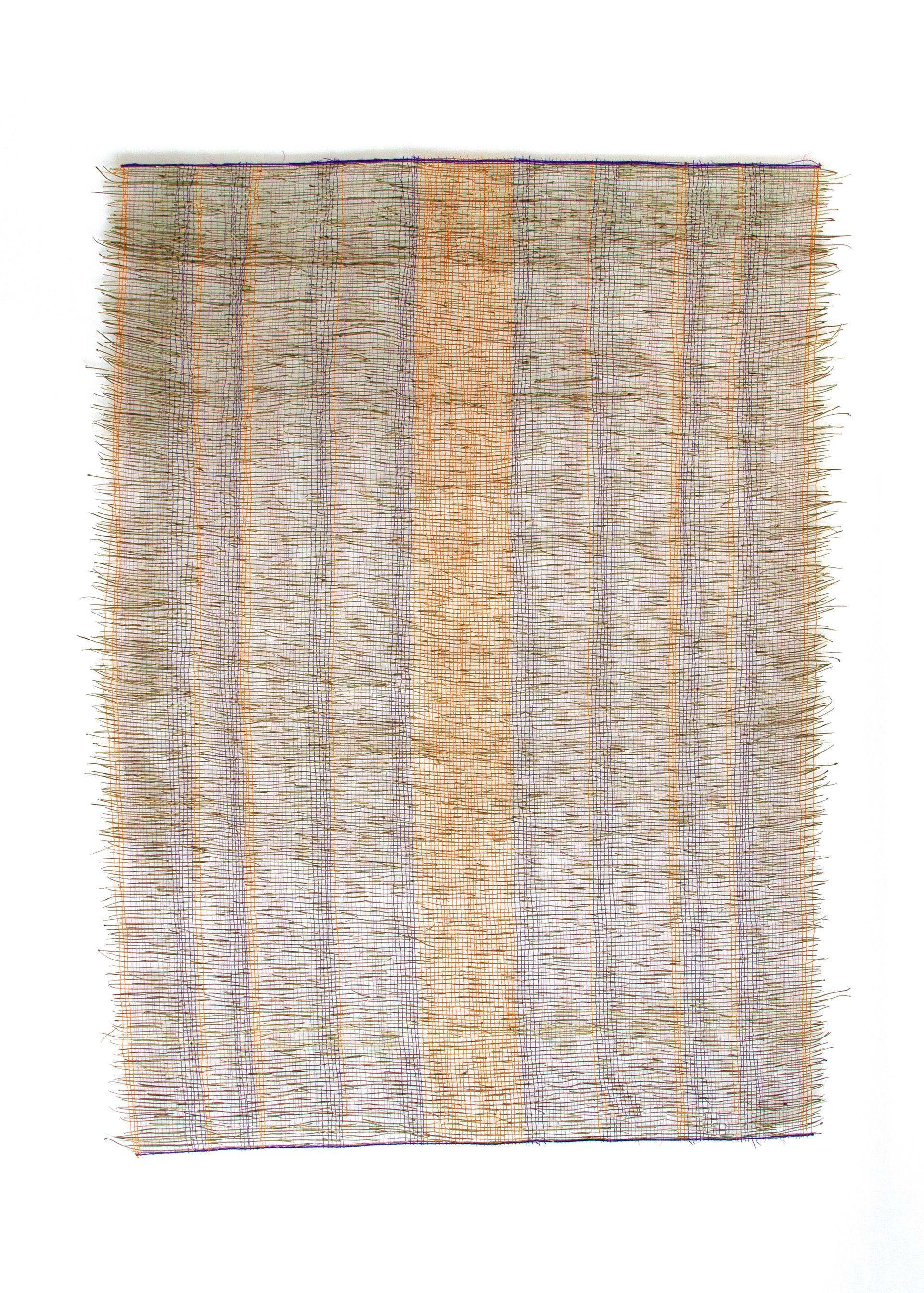
JUHLA, 2022 (60 x 80 cm)
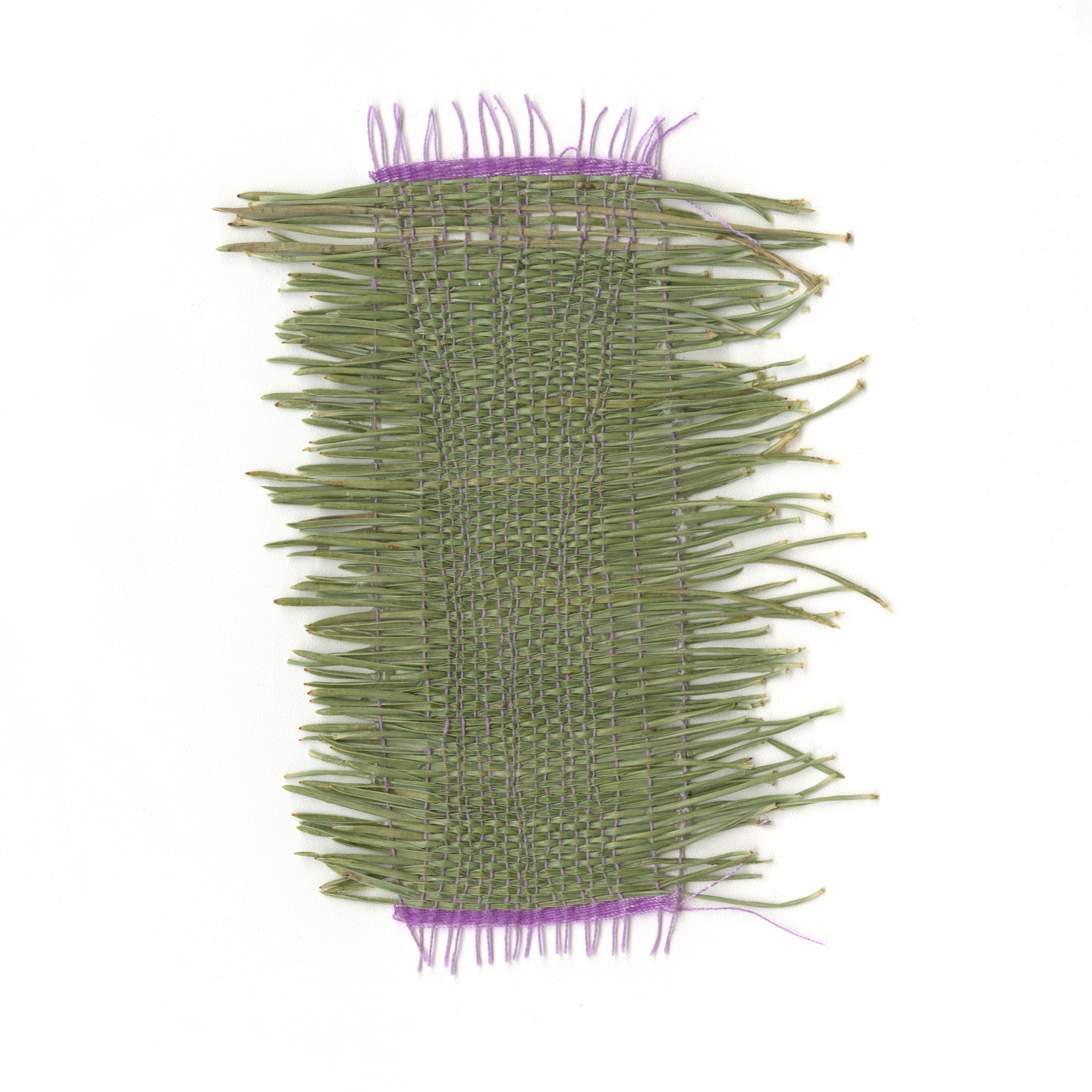
Sample Scots Pine #1, 2021 (7 x 9 cm)
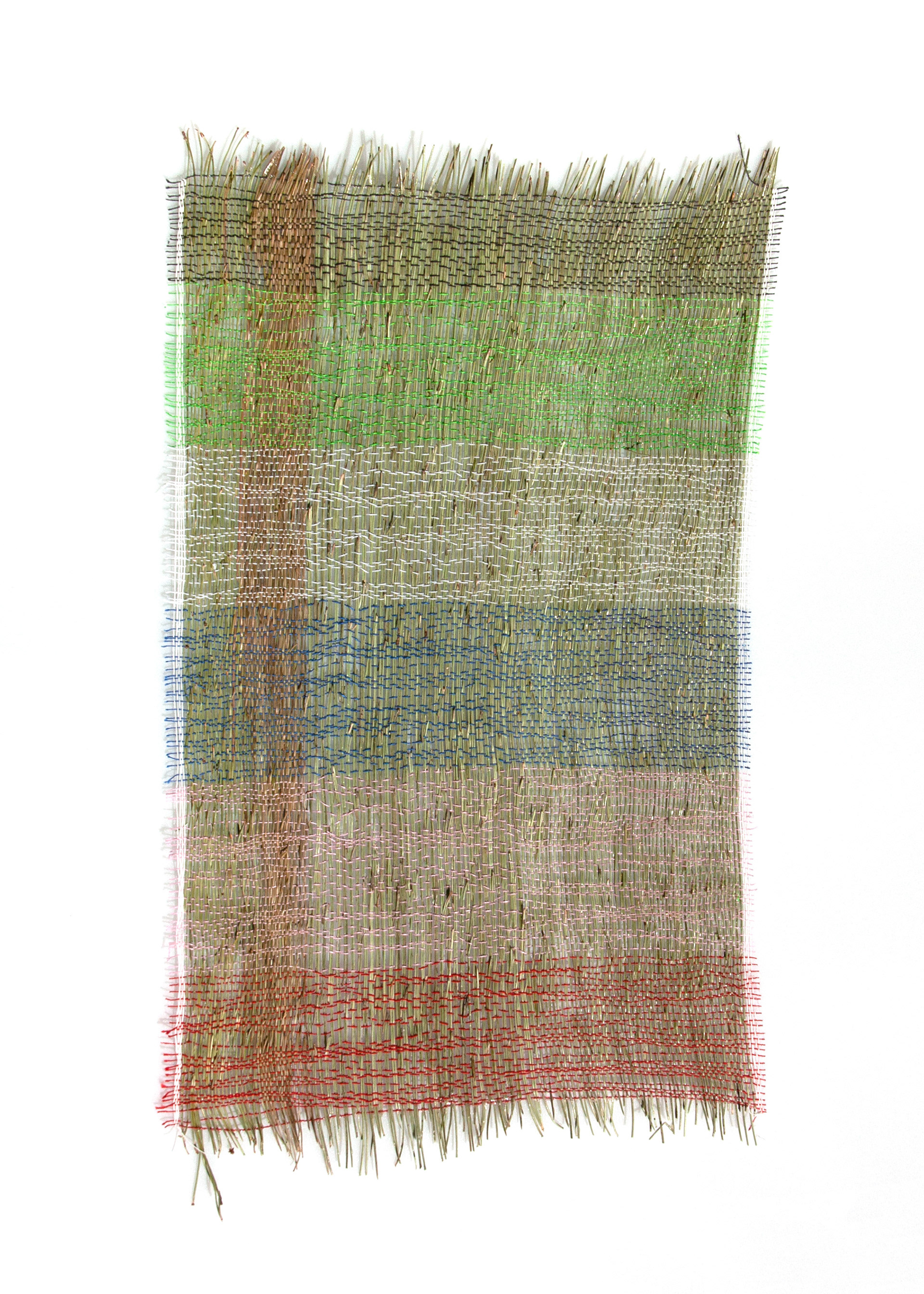
Sample Scots Pine #2, 2021 (28 x 50 cm)
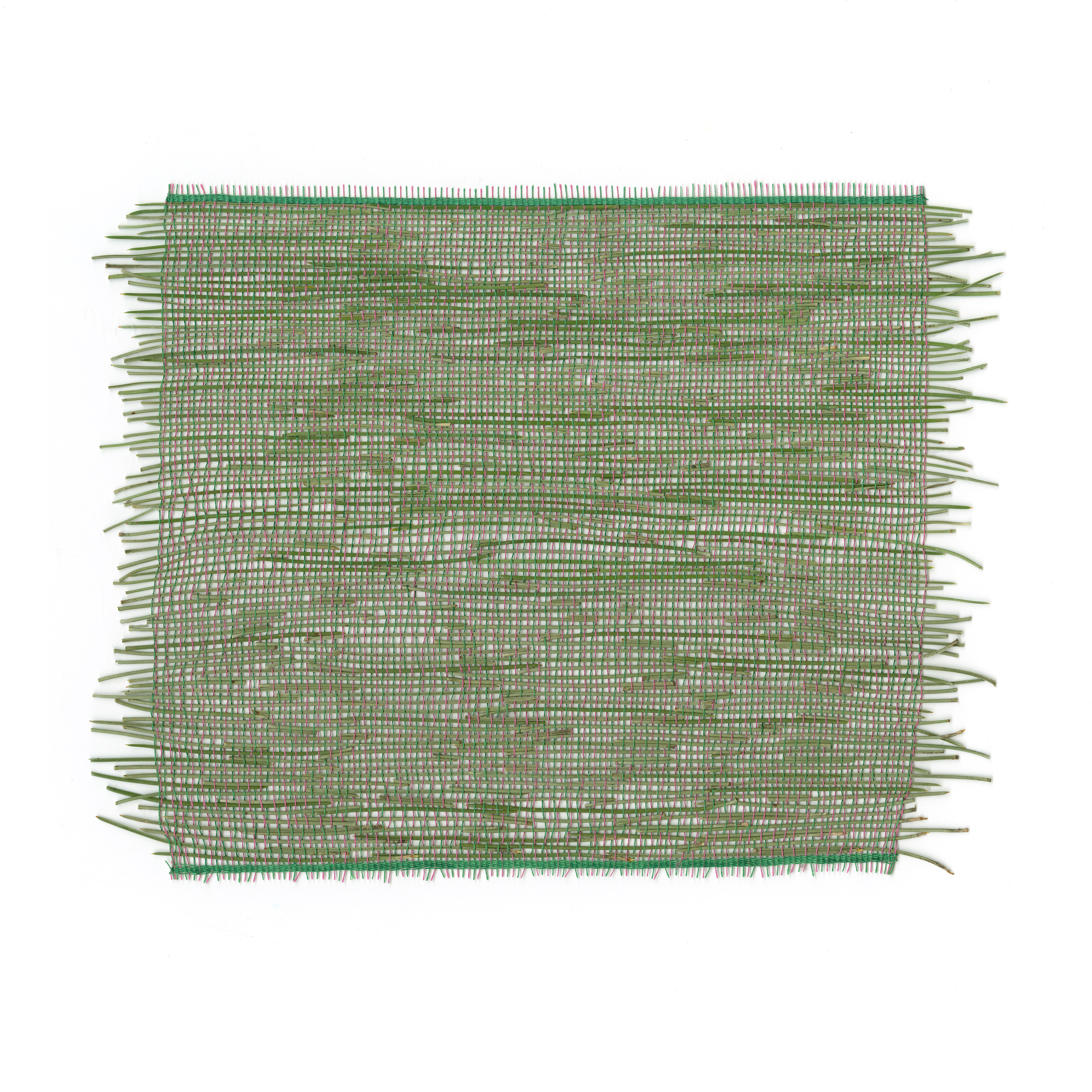
Sample Scots Pine #3, 2024 (30 x 23 cm)
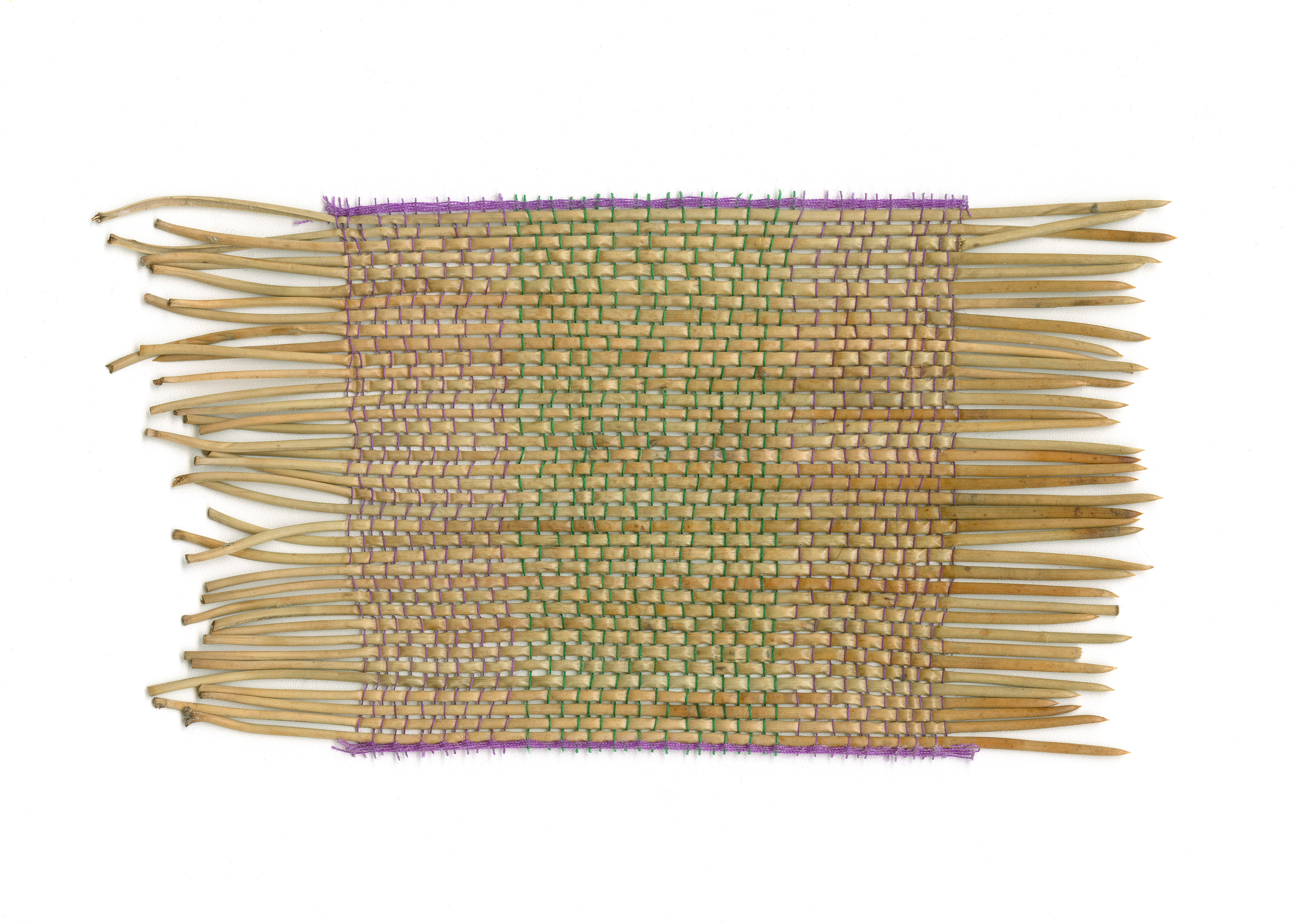
Sample Mountain Pine #1, 2023 (11 x 6,5 cm)
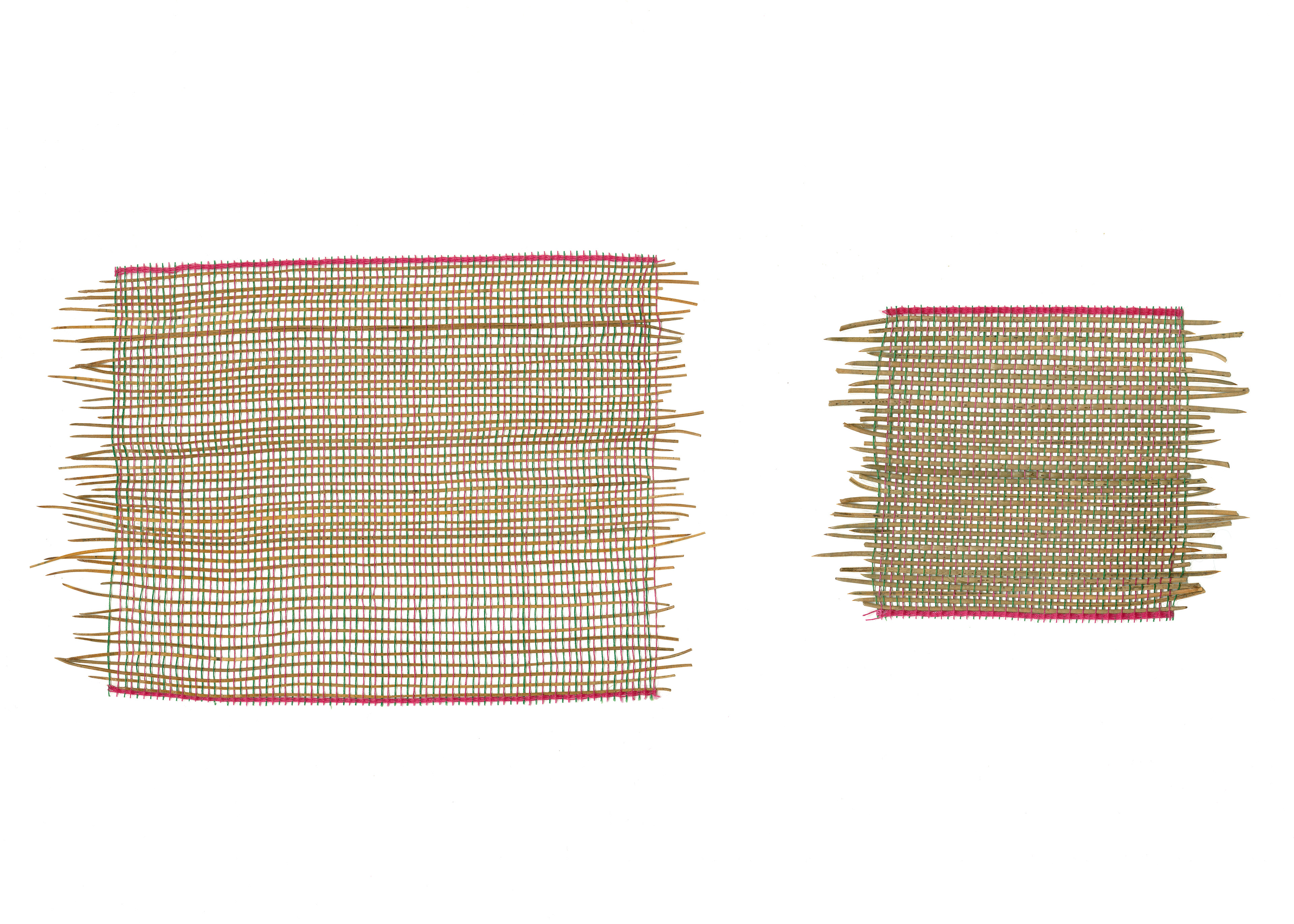
Sample Himalayan Pine #1, 2024 (11 x 16 cm) & Sample Mountain Pine #2, 2024 (10 x 7,5 cm)
